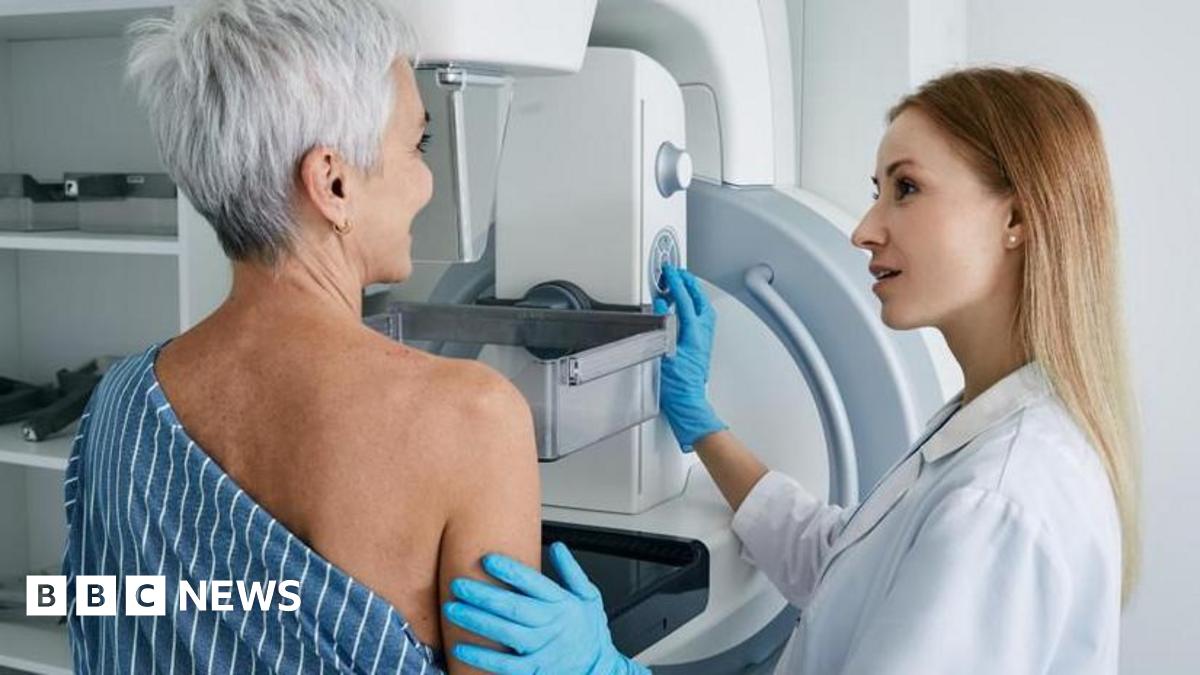Addressing Breast Cancer Risk: The Case For Supplemental Scans In Women With Dense Breasts

Welcome to your ultimate source for breaking news, trending updates, and in-depth stories from around the world. Whether it's politics, technology, entertainment, sports, or lifestyle, we bring you real-time updates that keep you informed and ahead of the curve.
Our team works tirelessly to ensure you never miss a moment. From the latest developments in global events to the most talked-about topics on social media, our news platform is designed to deliver accurate and timely information, all in one place.
Stay in the know and join thousands of readers who trust us for reliable, up-to-date content. Explore our expertly curated articles and dive deeper into the stories that matter to you. Visit Best Website now and be part of the conversation. Don't miss out on the headlines that shape our world!
Table of Contents
Addressing Breast Cancer Risk: The Case for Supplemental Scans in Women with Dense Breasts
Breast cancer is a prevalent concern for women globally, and early detection is crucial for successful treatment. However, for women with dense breast tissue, standard mammograms can sometimes miss cancerous tumors, leading to delayed diagnoses and potentially poorer outcomes. This critical issue highlights the growing importance of supplemental breast screening techniques for women with dense breasts.
Understanding Breast Density and its Impact on Mammography
Breast density refers to the amount of fibrous and glandular tissue relative to fatty tissue in the breast. High breast density, common in younger women and those with a family history of breast cancer, makes it harder for mammograms to detect abnormalities. The dense tissue can mask subtle changes indicative of cancer, leading to false negatives. This is why many medical professionals advocate for supplemental screening in these cases.
The Limitations of Mammography in Dense Breasts
Mammograms, while a valuable screening tool, are not foolproof. The X-rays used in mammography struggle to penetrate dense breast tissue effectively. This means a small tumor could be hidden behind dense tissue, making it invisible on a mammogram. Studies have shown a significantly increased risk of false negative mammograms in women with extremely dense breasts. This underscores the necessity for alternative screening methods to improve detection rates.
Supplemental Screening Options: Beyond the Mammogram
Fortunately, several supplementary screening options exist to address the limitations of mammography in dense breasts:
-
Breast Ultrasound: Ultrasound uses sound waves to create images of the breast tissue. It's particularly effective in identifying masses and cysts within dense breasts that might be missed on a mammogram. Ultrasound is often used as a first-line supplemental test for women with dense breasts.
-
Magnetic Resonance Imaging (MRI): MRI provides highly detailed images of the breast tissue. While more expensive and less readily available than ultrasound, MRI is highly sensitive in detecting breast cancer, even in dense breasts. It's often reserved for high-risk individuals or those with suspicious findings on mammograms or ultrasounds.
-
3D Mammography (Tomosynthesis): This advanced mammography technique takes multiple low-dose X-ray images from different angles, creating a 3D image of the breast. This allows radiologists to better visualize tissue layers and potentially identify cancers that might be obscured in standard 2D mammograms. While not a complete solution, 3D mammography can improve detection rates in women with dense breasts.
Advocating for Your Health: The Importance of Communication
It's crucial for women to understand their breast density. Your mammogram report should indicate your breast density level. If you have dense breasts, discuss supplemental screening options with your doctor or radiologist. They can assess your individual risk factors and recommend the most appropriate screening strategy. Don't hesitate to ask questions and advocate for your health. Early detection significantly improves the chances of successful treatment.
Legislation and Insurance Coverage:
Many states have enacted legislation mandating that women are informed about their breast density on their mammogram reports. This legislation aims to improve awareness and encourage discussion about supplemental screening. However, insurance coverage for supplemental screenings varies, so it’s essential to check with your insurance provider to understand your coverage.
Conclusion: A Multi-Modal Approach to Early Detection
The combination of mammography with supplemental screening methods, like ultrasound or 3D mammography, offers a more comprehensive approach to breast cancer detection in women with dense breasts. Open communication with your healthcare provider is vital to determining the best course of action for your individual needs. Early detection saves lives, and proactive screening is crucial for women with dense breasts to reduce their risk and improve their chances of survival. Learn more about breast cancer awareness and prevention by visiting reputable organizations like the American Cancer Society ().

Thank you for visiting our website, your trusted source for the latest updates and in-depth coverage on Addressing Breast Cancer Risk: The Case For Supplemental Scans In Women With Dense Breasts. We're committed to keeping you informed with timely and accurate information to meet your curiosity and needs.
If you have any questions, suggestions, or feedback, we'd love to hear from you. Your insights are valuable to us and help us improve to serve you better. Feel free to reach out through our contact page.
Don't forget to bookmark our website and check back regularly for the latest headlines and trending topics. See you next time, and thank you for being part of our growing community!
Featured Posts
-
 Bidens Presidency A Democratic Party Divided New Book Exposes Internal Tensions
May 23, 2025
Bidens Presidency A Democratic Party Divided New Book Exposes Internal Tensions
May 23, 2025 -
 Quentin Tarantino Inks Deal For Comprehensive Making Of Book Series Beginning With Once Upon A Time In Hollywood
May 23, 2025
Quentin Tarantino Inks Deal For Comprehensive Making Of Book Series Beginning With Once Upon A Time In Hollywood
May 23, 2025 -
 Todays Wordle Answer Hints And Solution For Puzzle 1433
May 23, 2025
Todays Wordle Answer Hints And Solution For Puzzle 1433
May 23, 2025 -
 Pacquiaos Comeback Facing Barrios For A Title Fight In Las Vegas
May 23, 2025
Pacquiaos Comeback Facing Barrios For A Title Fight In Las Vegas
May 23, 2025 -
 Analysis Trumps Golden Dome And The Future Of Us Missile Defense
May 23, 2025
Analysis Trumps Golden Dome And The Future Of Us Missile Defense
May 23, 2025
Latest Posts
-
 2025s Best Us Beaches According To Dr Beach
May 23, 2025
2025s Best Us Beaches According To Dr Beach
May 23, 2025 -
 Paramount Lands South Park The Future Of The Shows Streaming Availability
May 23, 2025
Paramount Lands South Park The Future Of The Shows Streaming Availability
May 23, 2025 -
 Robert Pattinson Joins Bong Joon Hos New Film Project
May 23, 2025
Robert Pattinson Joins Bong Joon Hos New Film Project
May 23, 2025 -
 Sleeper Sci Fi Hit Now Streaming Dont Miss It
May 23, 2025
Sleeper Sci Fi Hit Now Streaming Dont Miss It
May 23, 2025 -
 Top 6 I Phone Tasks After Upgrading To I Os 18 5 A Guide
May 23, 2025
Top 6 I Phone Tasks After Upgrading To I Os 18 5 A Guide
May 23, 2025
